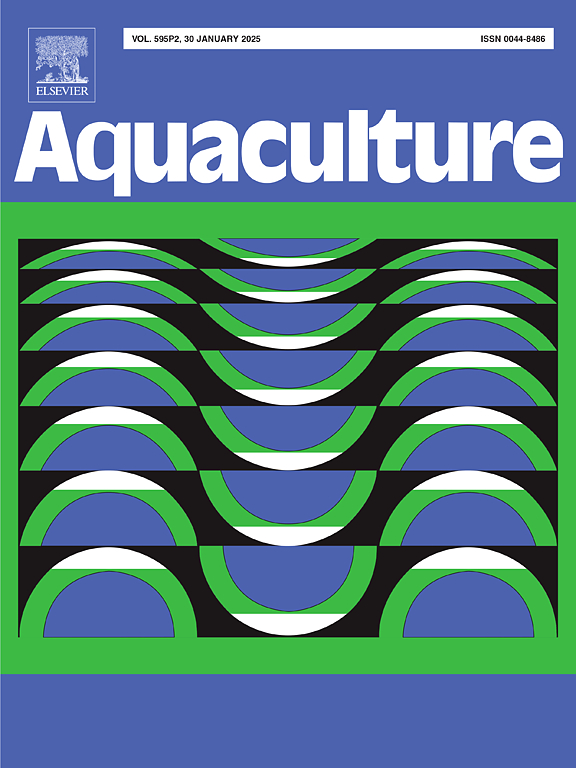Impacts of climate change on mariculture in coastal China: Spatial reconfiguration and structural adaptation
IF 3.9
1区 农林科学
Q1 FISHERIES
引用次数: 0
Abstract
As a pivotal component of marine fisheries, mariculture is confronting significant and multifaceted impacts from climate change. Understanding the climate change effects on fishermen's mariculture practices is crucial for safeguarding fishermen's livelihoods and ensuring global food security. Drawing upon panel data from 15 coastal cities in China during 2003–2022, we conducted a comprehensive analysis of mariculture spatial distribution patterns, subsequently developing a decision-making model for fishermen's mariculture to systematically assess climate change impacts. The study found that: (1) Climate change exacerbation will progressively diminish the marginal productivity of mariculture, depress fishermen's anticipated income levels, and consequently trigger a contraction in regional mariculture acreage. (2) The impacts of climate change show obvious species differences. Unfavorable climatic conditions, such as rising sea surface temperature and decreasing seawater pH, will further reduce the area of fish and shellfish mariculture, lowering the proportion of fish mariculture, thus inducing the fishermen to adjust their mariculture structure in order to avoid potential climate losses. (3) Additional analysis indicates significant heterogeneity in climate change vulnerability across production scales. The detrimental effects are more acute for large-scale mariculture enterprises in terms of area reduction, while rising sea temperatures markedly stimulate small-scale fishermen's transition toward shellfish mariculture. Therefore, it is necessary to enhance the climate early warning mechanism, tackle short-term climate changes, upgrade mariculture technology, optimize the structure of aquaculture species, increase policy support, and formulate differentiated subsidy strategies, so as to provide a reference for fishermen to adapt to climate change and stabilize their livelihoods.
气候变化对中国沿海海水养殖的影响:空间重构与结构适应
作为海洋渔业的关键组成部分,海水养殖正面临着气候变化带来的重大和多方面的影响。了解气候变化对渔民海水养殖方式的影响,对于保障渔民生计和确保全球粮食安全至关重要。利用2003-2022年中国15个沿海城市的面板数据,对海鱼养殖的空间分布格局进行了综合分析,并建立了渔民海鱼养殖的决策模型,以系统地评估气候变化的影响。研究发现:(1)气候变化加剧将逐步降低海水养殖的边际生产力,降低渔民的预期收入水平,从而引发区域海水养殖面积的收缩。(2)气候变化的影响表现出明显的物种差异。海面温度上升、海水pH值降低等不利的气候条件会进一步减少海鱼贝类养殖面积,降低海鱼养殖比例,从而促使渔民调整其海鱼养殖结构,以避免潜在的气候损失。(3)气候变化脆弱性在不同生产规模间存在显著异质性。在面积减少方面,对大规模海水养殖企业的不利影响更为严重,而海水温度上升明显刺激小规模渔民向贝类海水养殖过渡。因此,有必要加强气候预警机制,应对短期气候变化,升级海水养殖技术,优化养殖品种结构,加大政策支持力度,制定差异化补贴策略,为渔民适应气候变化,稳定生计提供参考。
本文章由计算机程序翻译,如有差异,请以英文原文为准。
求助全文
约1分钟内获得全文
求助全文
来源期刊

Aquaculture
农林科学-海洋与淡水生物学
CiteScore
8.60
自引率
17.80%
发文量
1246
审稿时长
56 days
期刊介绍:
Aquaculture is an international journal for the exploration, improvement and management of all freshwater and marine food resources. It publishes novel and innovative research of world-wide interest on farming of aquatic organisms, which includes finfish, mollusks, crustaceans and aquatic plants for human consumption. Research on ornamentals is not a focus of the Journal. Aquaculture only publishes papers with a clear relevance to improving aquaculture practices or a potential application.
 求助内容:
求助内容: 应助结果提醒方式:
应助结果提醒方式:


